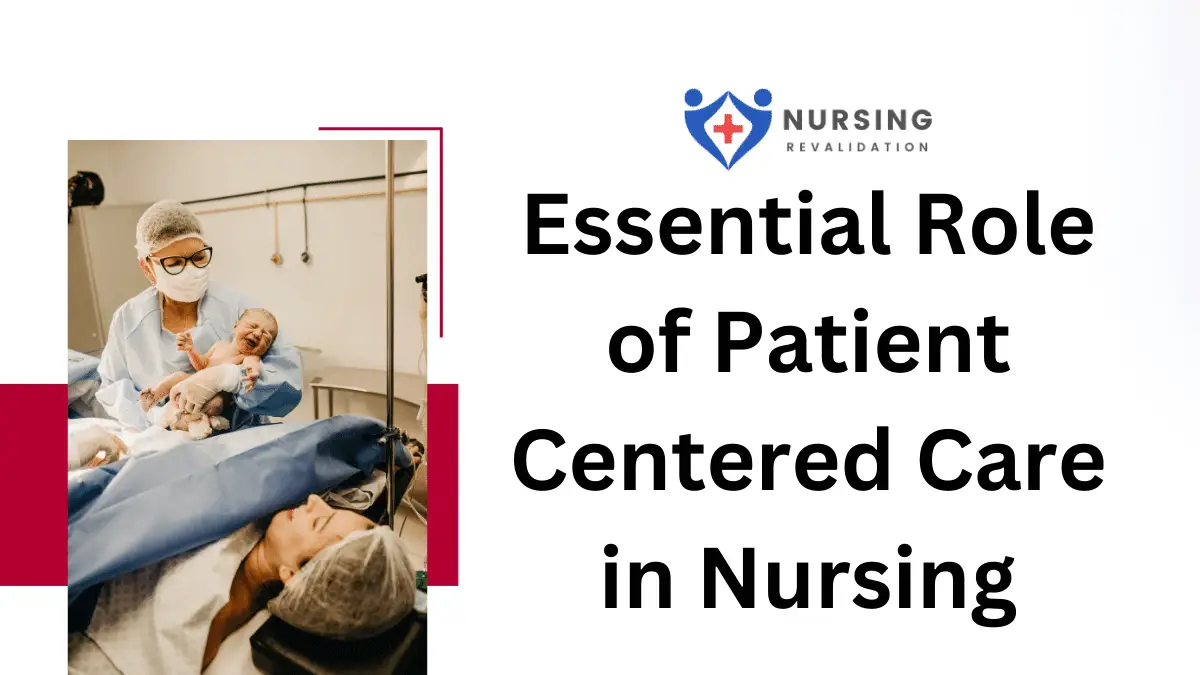In the realm of healthcare, particularly in nursing, the concept of patient-centered care stands as a cornerstone for providing quality and holistic healthcare services. This article aims to delve into the intricacies of patient-centered care, exploring its significance, principles, and implications within the nursing profession. Through a comprehensive analysis, we will uncover why patient-centered care is not just a buzzword but an indispensable approach for optimizing patient outcomes and enhancing overall healthcare experiences.
Understanding Patient-Centered Care:
Definition and Core Principles
Patient-centered care revolves around tailoring healthcare services to meet the unique needs, preferences, and values of each individual patient. At its core, it embodies respect for patients’ autonomy, active involvement in decision-making, and fostering a therapeutic partnership between healthcare providers and patients. The principles of patient-centered care encompass empathy, compassion, cultural sensitivity, and a commitment to promoting patient dignity and well-being.
Table: Key Benefits of Patient-Centered Care in Nursing
| Key Benefits of Patient-Centered Care in Nursing |
|---|
| 1. Improved patient satisfaction and engagement |
| 2. Enhanced clinical outcomes and treatment efficacy |
| 3. Facilitated shared decision-making and autonomy |
| 4. Cultivation of therapeutic relationships and trust |
| 5. Promotion of cultural competence and diversity awareness |
| 6. Integration of technology for enhanced patient engagement |
The Importance of Patient-Centered Care in Nursing:
Enhancing Patient Satisfaction and Engagement
When patients feel valued, heard, and respected, their satisfaction with the healthcare experience significantly improves. In nursing, adopting a patient-centered approach fosters trust and rapport between nurses and patients, leading to enhanced patient engagement in their care plans. Engaged patients are more likely to adhere to treatment regimens, actively participate in therapeutic interventions, and experience better health outcomes.
Optimizing Clinical Outcomes
Patient-centered care has been associated with improved clinical outcomes across various healthcare settings. By incorporating patients’ perspectives, preferences, and goals into the care delivery process, nurses can tailor interventions that are more effective, relevant, and aligned with patients’ needs. This personalized approach not only enhances treatment efficacy but also reduces the likelihood of medical errors, complications, and hospital readmissions.
Promoting Shared Decision-Making
Central to patient-centered care is the concept of shared decision-making, wherein healthcare providers and patients collaborate to make informed choices regarding treatment options, care plans, and end-of-life preferences. In nursing practice, fostering open communication, providing comprehensive health education, and respecting patients’ autonomy empower individuals to actively participate in decision-making processes. This shared responsibility cultivates a sense of ownership and empowerment among patients, leading to more favorable outcomes and higher satisfaction levels.
Implementing Patient-Centered Care in Nursing Practice:
Effective Communication Strategies
Communication lies at the heart of patient-centered care. Nurses must hone their communication skills to effectively convey information, listen attentively to patients’ concerns, and address their emotional needs. Active listening, empathy, and non-verbal communication play pivotal roles in building trust and rapport with patients, fostering therapeutic relationships that are conducive to patient-centered care.
Cultural Competence and Diversity Awareness
Cultural competence is indispensable in delivering patient-centered care, especially in multicultural and diverse healthcare settings. Nurses must be sensitive to patients’ cultural backgrounds, beliefs, and values to provide culturally congruent care. By embracing diversity and promoting inclusion, nurses can create environments that are respectful, inclusive, and conducive to meeting the unique needs of all patients.
The Role of Technology in Patient-Centered Care:
Harnessing Innovation for Enhanced Patient Engagement
In the digital age, technology serves as a powerful tool for facilitating patient-centered care. Electronic health records (EHRs), telehealth platforms, and mobile health applications enable patients to access healthcare services remotely, communicate with their healthcare providers, and actively engage in self-management of their health conditions. Leveraging technology not only enhances convenience and accessibility but also empowers patients to take a proactive role in their healthcare journeys.
Conclusion:
In conclusion, patient-centered care serves as a guiding principle that underpins the delivery of quality healthcare services in nursing practice. By prioritizing patients’ needs, preferences, and values, nurses can foster therapeutic relationships, promote shared decision-making, and optimize clinical outcomes. Embracing patient-centered care not only enhances patient satisfaction and engagement but also elevates the standard of care delivery, making it a fundamental component of modern nursing practice. As healthcare continues to evolve, it is imperative for nurses to champion patient-centered care as a catalyst for positive change and holistic healing.

